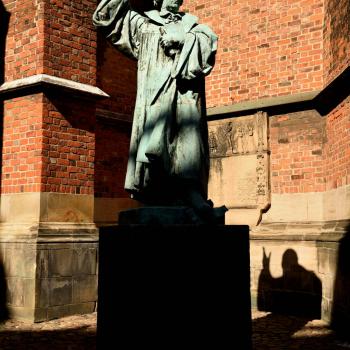 Lord David Cecil, Melbourne (New York: Harmony Books, 1979).
Lord David Cecil, Melbourne (New York: Harmony Books, 1979).
Lord David Cecil, a direct descendent of Lord Melbourne (William Lamb: 1779 – 1848), and one of the Inklings, offers a very affectionate biography of the Prime Minister. One gets a sense that Lord Cecil is trying to give a balanced presentation of William Lamb, but it is also clear that his personal connection to Lord Melbourne readily leads him to a rather positive assessment of the Prime Minister and to be supportive of Melbourne’s points of view over those of his critics. This is not a bad thing, because he does not neglect the critical issues, and indeed, hindsight does help mollify much of the political intrigue which surrounded Melbourne, such as his relationship with the young Queen Victoria. Nonetheless, one should not expect a full, unbiased, exploration of the life of Lord Melbourne here, and one will want to read other biographies of the man to get a better perspective of his life and accomplishments. With that caveat, this is a great book; people interested in politics or history would be well served reading it.
This book gives us a chance to explore the concept of political scandal without being in the midst of it. That is, it gives us a perspective as to what happens in the life of politics, so that one can better appreciate and understand any and all such scandals as they happen. Politics and scandal go hand in hand. Some, however, are of a surprising level, and with Lord Melbourne, it is difficult to imagine politicians in today’s day and age being able to survive in politics if their lives read anything like Lord Melbourne’s. This could be seen as a good thing, because it can mean we don’t take scandal lightly, but it could also be seen as a bad thing, because it might mean many people who could otherwise be excellent politicians are limited to what they can do for society.
What exactly do we find in David Cecil’s book? We find out much of English political society of his day: one filled with regular parties where married couples get into adulterous affairs — often engaged for the sake of some political or social advancement or another. Some were kept in private, some were out in the open. Lord Melbourne’s mother was actively involved in high society, and it is likely that many of her children were not fathered by her husband (William Lamb himself supposedly the son of Lord Egremont). And, after a rather unapproving portrait of her, as David Cecil points out what was central to her and her life:
But all her qualities, good and bad, were subordinated to one presiding motive: ambition. Since to her the world was the only one, its prizes seemed to her the only objects worth having. And her whole life was given up to the getting them for herself and for her family. To this end she dedicated her beauty, her brains and her energy; it was for this she learned to be sagacious and smiling, tactful and dignified, ruthless and cunning. A single purpose united every element in her personality. Here we come to the secret of her eminence. It was not that she was more gifted than many of her rivals, but that her gifts were more concentrated. Amid a humanity frustrated by conflicting aspirations and divided desires, Lady Melbourne stood out all of a piece; her character, her talents, moved steadily and together towards the same goal. One might suspect her, but one could not withstand her will. (32)
And it was her will which helped push Lord Melbourne into politics and to make sure he kept at it when he did not desire to do so; he was originally not intended to have a political life, but when his older brother died, it became his responsibility to represent his family in Parliament. Throughout the book, one gets the sense that politics was a love-hate relationship for him; many times he would have liked to retire, but then he would find himself caught back in one political intrigue after another, and constantly be brought higher and higher into the political mix, because he was liked and respected by Whigs and Tories alike. He often agreed more with the Tories than many in his own party, the Whigs, but he was a Whig by birth and felt obligated to them; this helped make him a kind of centrist in his day. This is best exemplified by the fact that when the Tories were willing to give him a position in their government, he declined it out of loyalty to the Whigs.
While there were to be many women in his life, three come out as the most important, and each created their own scandal for Melbourne: Caroline Lamb, his wife; Mrs. Norton, a friend; and Queen Victoria.
One of the great intrigues of the book is Caroline Lamb. As David Cecil presents her, she was fickle, thinking herself to be the main heroine in the stage of life, and she was constantly looking out for the right hero to accompany her. In his youth, Lord Melbourne appeared to be the right man; they fell in love, and married young (in 1805). However, after a couple years of marriage, Caroline got bored and started to look out for herself, to find someone else to engage her (to the heartache of her husband). Eventually she found the one who she thought would be the one: Byron (in 1812). Their affair was to be famous, and their breakup even more famous: when it was clear Byron was finished with her, first tried to kill herself at a social function, and then later, wrote a novel based upon her experiences with Byron, Glenarvon, causing great emotional pain to her friends and family alike. After the breakup with Byron, she would never be the same; her emotional health was fractured. By 1825 Caroline and William were separated, and she died in 1828. This section of the book is one of the most important, and there is far too much which goes on to discuss it all here.
Mrs. Norton was next. Here, Lord Cecil portrays the events as a very close, deeply affectionate, but non-sexual affair. It’s not that Lord Cecil wants to suggest Lord Melbourne lived a pure life. He doesn’t. He finds it likely that before meeting Mrs. Norton, Melbourne had a relationship of sorts with one Miss Emily Eden, and Lord Cecil believes their relationship had a sexual character to it (in part, because Lord Melbourne never denied it as he did with his relationship with Mrs. Norton, even when such denials were no longer necessary). Mrs. Caroline Norris originally wrote to Lord Melbourne in 1830 to help her husband find a job. She was the granddaughter of Sheridan, and Lord Melbourne had heard she was a rather charming woman; he decided to answer her petition in person, and to help her and her husband as he could. She was not living in the happiest of marriages; she fought with her husband often and he could be physically cruel with her. Yet, she tried to keep the marriage intact, and to look after her family. But when she and Melbourne met, they both had qualities the other were looking for: he was more cool and reserved, an intellectual though with a very epicurean love for pleasure, while she was intelligent, beautiful, and had a great passion for life, one which helped bring the best out of Melbourne. By this time, Caroline was dead, and Melbourne needed companionship and Mrs. Norton fulfilled that need — they would meet daily, and be seen together; he would wave to her in the mornings, and meet with her at night, causing all kind of gossip. Lord Cecil provides his assessment of the situation quite succinctly:
He grew very fond of her, though, and there was something of the lover in his feeling. He was too much a man for it to be otherwise. The relationship between them was pitched in a slightly raised emotional key: it had its flirtatious gaiety, its moments of tended sweetness and its spasms of jealousy.
[…]
Yet their relationship remained platonic. Not, in the circumstances, was this so curious as a censorious world may suppose. Caroline had always professed a strict regard for virtue. “Adultery is a crime not a recreation”: thus she had firmly repulsed the attention of Lord Ossultson. Moreover, she always maintained that it was friendship, not love, she wanted from men (229-231).
But it was a friendship which would put them close, and one which would make Lord Melbourne feel responsible for what happened to Mrs. Norton. The friendship was noted by her husband, George. He was a rough man, and that eventually led to their divorce. One night when they were in a closed carriage, he was smoking a hookah and puffing it despite her pleas for him to stop; eventually she would take the mouthpiece and throw it out the window. He grabbed her by the throat; when she got herself free from his clutches, she jumped out of the carriage and returned to her own family. Divorce was certain at this stage (in 1836) — but, he thought he could take advantage of the situation and use the divorce for his own profit. He charged his wife as being an adulteress with Lord Melbourne. The case which came out of this was famous, and would be parodied by Dickens in The Pickwick Papers. While the case ended with Melbourne and Mrs. Norton being exonerated, the charges of course affected Mrs. Norton, who lost custody of her children and was, from that time on, not too well off. For sometime, especially during the case, she felt Lord Melbourne had been cool to her, and that hurt; but he would show his affection for her and make sure she was given financial support, not only when he was alive, but as a part of his will as well.
The third woman of his life was Queen Victoria, who became queen in 1837. Here he is an elderly statesman, a centrist who has decried political intrigue, a conservative in tendencies who yet recognized that the demands of progress could not be rejected when they became necessary (he was afraid of what would happened when they would be followed when not deemed as necessary; he did not think reforms always did the good they intended to do), and a person who put the preservation of England ahead of his own ambition, who became the personal and close advisor of Queen Victoria as both her Prime Minister but also as her close friend and compatriot. Lord Cecil presents his interest was in her like a daughter, though her interest in him was one of youthful hero worship: she held a firm crush on before she would find the real love of her life, Prince Albert. They were to be together as often as they could be — either talking late at night, or going out and riding horses during the day. This caused a kind of scandal because the public could tell her fascination with Melbourne — so much so that she was often called “Mrs. Melbourne” as a kind of rebuke.
During this time, Lord Melbourne wanted to train Queen Victoria to look beyond the political divide between Whigs and Tories (she favored the Whigs), but to look for the interest in the country, because he knew the Whigs were not going to last in office and she needed to be able to work with the Tories as well. A major example of this lies with what happened with the Whig government broke in 1839; Sir Robert Peel, a Tory, was to be the next Prime Minister. Lord Cecil thinks Melbourne was displeased with her behavior with Peel, who declined the office of Prime Minister when Queen Victoria refused to work with him in the “Bedchamber Crisis” — Peel wanted some of her ladies of the court, all Whigs, removed and to put some Tories in their place, but the Queen completely refused:
Melbourne did not feel very happy, and still less so when he discovered from a memorandum of Peel’s that the Queen, carried away by the frenzy of battle, had failed to give him a complete, accurate accounting of the proceedings. Peel, it appeared, had asked only for the removal of some of the ladies, not all. Melbourne was sufficiently dismayed b y this information to make an effort through a third party to persuade Peel to come back after all (364).
Despite being upset with what happened, he accepted the role of Prime Minister once again under Queen Victoria. This time, though still close, things had begun to be cool. She would meet and marry Albert, and Albert would take central place in her life and heart. Melbourne’s government would fall again 1841. This time, he would not come back. Though Queen Victoria and Lord Melbourne would initially begin his time out of office with continuous letters to each other, when the public got wind of this, it was asked to be stopped for all kinds of practical reasons. Their contact slowly declined, and Queen Victoria quickly put all her attention to her husband, to the extent that she would even look back at her own time with Lord Melbourne as one of childish innocence which had to be put aside for the sake of her real and only love, Albert. When Lord Melbourne died in 1848, Queen Victoria showed her respects, but the situation was very cool:
The proper formalities were observed. Palmerston wrote announcing the sad news to the Queen; the Queen sent her condolences to Lady Palmerston; and a lengthy, if unenthusiastic, estimate of his character and achievement appeared in the Times. But in fact, Melbourne’s death made little stir. The world was changing fast in the nineteenth century. And, though he was only sixty-nine when he died, he had outlived his time (432).
There is much more to this book than with the exposition of Lord Melbourne’s life with women, but this plays a central part in the work as they played a central part in his life. We are also presented with the interests and daily life of Lord Melbourne; we are shown the difficulties he faced in life, from both his family and outside of it, and how it affected him in his political activities. We are also shown Lord Melbourne as a cool, somewhat skeptical, scholar – attracted to antiquity, he collected and read the great works of the past in their original languages, writing notes in his books as he explored their themes. He had a fondness for patristics, not because he was a devout, orthodox Christian (he believed in God, but was skeptical of Christian doctrine, and rarely went to church; he saw himself more as a mystic than anything else) but because they offered to him an intellectual challenge and presented to him the difficulties involved in being attached to any one particular doctrine (though he appreciated people who were). He would argue Christian doctrine with fundamentalists though he knew he could not debate it with scholars. As Prime Minister, he took his role in ecclesial affairs seriously, looking for men who were orthodox but not necessarily rigid in their exposition:
… he did not want to advance any man whose views were heterodox or who, for whatever reason, was unpopular with the main body of the clergy. Peace and quiet, as always, were the things he cared most about; and any sympathy he might personally feel with a man or with his opinions was kept strictly in cheek by his over-riding determination to avoid a fuss (284).
And this is exactly what Lord Cecil offers to us about Lord Melbourne: he was a man who liked to avoid a fuss. He was centrist, highly sympathetic to keeping things as they were, but he was also a man who believed popular sentiment had to also be appeased. He promoted several reforms while in office because he felt they were necessary, not because he agreed with all of them. Indeed, he held a constant desire to avoid the mistakes of France, where he felt progressive reforms led to revolution. And yet, there were a few things which Lord Melbourne would hold and fight for, even if unpopular. Perhaps one of the most interesting positions he held was for emancipation for Ireland and religious liberty for Catholics. When he was the Chief Secretary for Ireland, in 1827, these two positions made him quite popular with the Irish populace – and disliked by the people who were under his authority. He would meet with and work with the “opposition” and earn their respect, because he treated their concerns with respect and actually supported many of their efforts; but his time in Ireland was too short for him to do any long term good.
Lord Melbourne is a very interesting, and indeed, important political figure of the 19th century. His life was one filled with intrigue; while there is much which we would find in his actions to be questionable, his life, as a whole, serves as a great example for politicians. Lord Cecil offers us a good tour de force into his life, and it is one which should be studied, now more than ever, to help show us what it really means for a politician to be working in the center, trying to unite instead of divide the people. Go read this book.
4 1/2 out of 5 stars.















